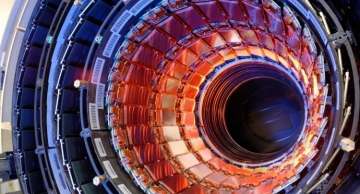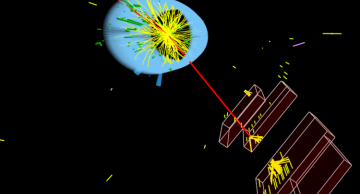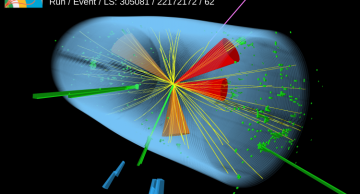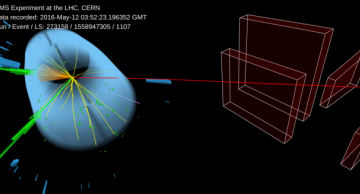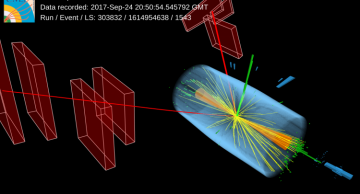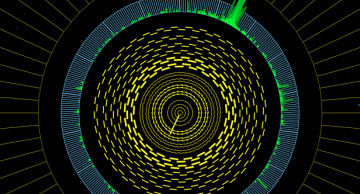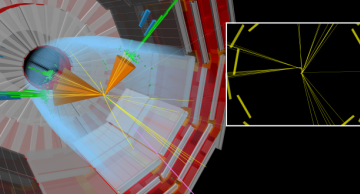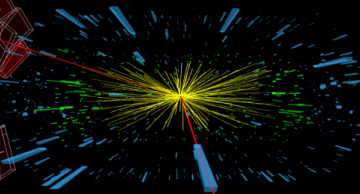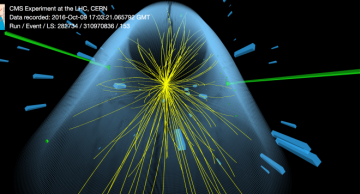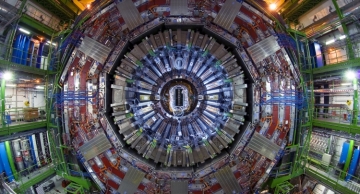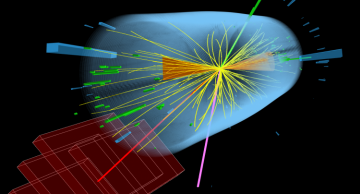The CMS Collaboration announced the first observation of a new way the B0s meson – a particle combining the beauty quark (b) and the strange quark (s) – can disintegrate. The observation involves two other particles, the well-known ϕ meson…
News
|
fblekman |
Physics
Identification of muons is essential for the physics done at the LHC. CMS has recently published a paper with new techniques to identify muons with high momentum. What is so special about muons with high momentum that they deserve a dedicated paper…
|
fblekman |
Physics
The CMS collaboration has achieved the first observation of a ttH process in a single Higgs boson decay channel. The Higgs boson is examined in its decay to two photons when produced alongside a top quark and antiquark. This enables the…
|
fblekman |
Physics
The CMS collaboration has examined for the first time the kinematic dependence of the production of a top quark and a W boson. This gives insight into the quantum interference of top quark production at the LHC and allows more accurate…
|
fblekman |
Physics
To investigate when the Standard Model will start breaking down, the CMS Experiment looks at extremely rare collisions where the Large Hadron Collider is working as a boson-boson collider. This can teach us more about the nature of the…
|
fblekman |
Physics
New, undiscovered charged particles could be produced by the LHC, leaving tracks in CMS that look similar to tracks from Standard Model particles. If the new particle decays to other, unseen new particles inside the CMS tracker, a very striking…
|
fblekman |
Physics
Nowadays, artificial neural networks have an impact on many areas of our day-to-day lives. They are used for a wide variety of complex tasks, such as driving cars, performing speech recognition (for example, Siri, Cortana, Alexa), suggesting…
|
fblekman |
Physics
At the LHC, protons do not collide one at a time. Instead, the protons are combined into bunches, packages of more than 100,000 million (1011) protons. These bunches are then pointed at each other at the four collision points of the LHC. Even when…
|
fblekman |
Physics
The CMS collaboration presented over ten brand-new results in the latest installment of the Quark Matter conference, one of the largest conferences in the field of heavy-ion physics.
In heavy-ion physics, the properties of the quark-gluon plasma, a…
|
fblekman |
Physics
A new result by the CMS Collaboration narrows down the mass of the Higgs boson to a precision of 0.1%.
After reporting the observation of the Higgs boson at the CERN LHC in 2012, scientists the ATLAS and CMS Collaborations have been busy…
|
fblekman |
Physics
For the first time, CMS physicists have measured the production rate of top quark pairs as a function of three experimental observables simultaneously. The new result helps to answer several fundamental questions, among which, the properties of…
|
fblekman |
Physics
For the first time, CMS physicists have investigated an effect called the “running” of the top quark mass, a fundamental quantum effect predicted by the Standard Model.
Mass is one of the most complex concepts in fundamental physics, which went…

